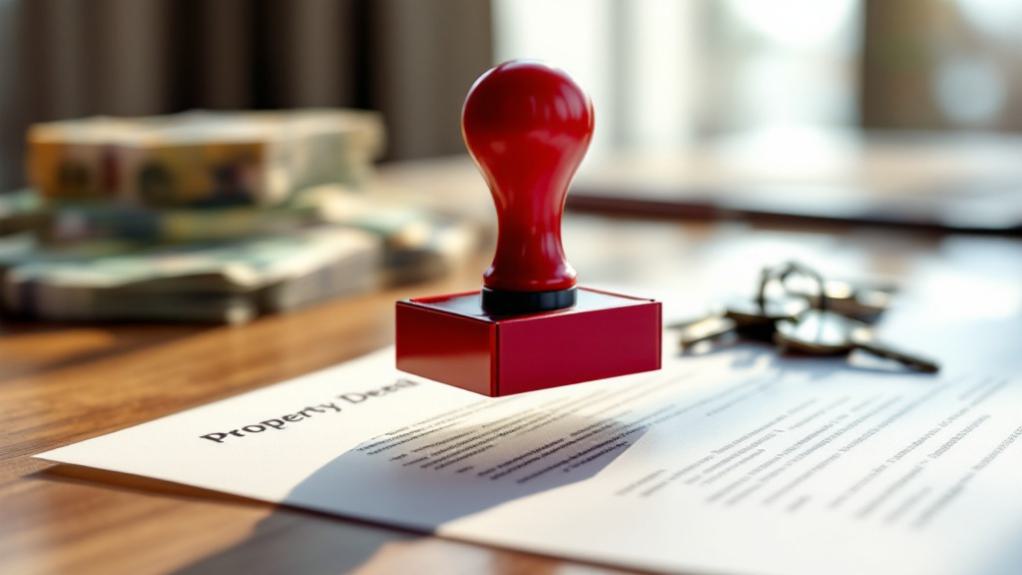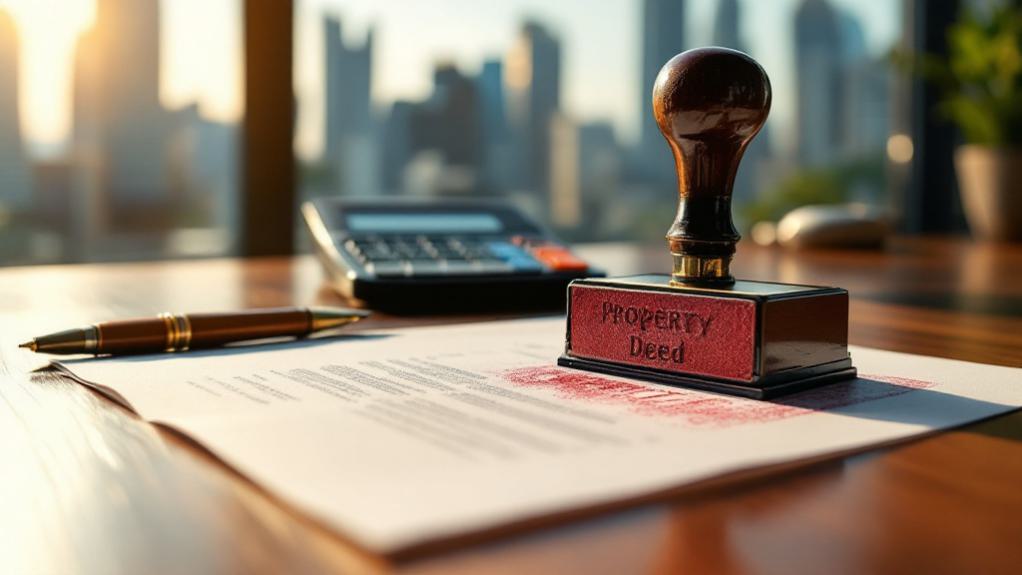Buyer’s Stamp Duty (BSD) in Singapore is a mandatory one-time tax imposed on all property acquisitions regardless of buyer nationality. The progressive tax structure ranges from 1% on the first $180,000 to 6% for portions exceeding $3 million, calculated on either purchase price or market value, whichever is higher. Payment must be completed within 14 days of document signing domestically (30 days for overseas transactions), with substantial penalties for non-compliance. Further examination reveals important nuances for various property types and transaction categories.

When purchasing property in Singapore, whether residential or non-residential, buyers must navigate the exhaustive taxation framework known as Buyer’s Stamp Duty (BSD), a mandatory tax levied on all property acquisitions regardless of the buyer’s residency status. Introduced as a regulatory mechanism for the property market and revenue generation tool, BSD operates on a progressive rate structure that calculates the payable amount based on either the property’s purchase price or market value, whichever is higher, ensuring the government captures the true transaction value for taxation purposes.
The current BSD rates employ a tiered system that increases with property value, beginning at 1% for the first $180,000, followed by 2% on the next $180,000, 3% on the next $640,000, 4% on the next $500,000, 5% on the next $1,500,000, and culminating at 6% for any remaining amount exceeding $3,000,000. This progressive structure results in higher-value properties bearing proportionally greater tax burdens, a design intended to maintain market stability and affordability across different property segments.
The payment process requires buyers to remit the calculated duty within strict timeframes—14 days for documents signed in Singapore and 30 days for overseas signings—through the e-Stamping portal or authorized service bureaus. Non-compliance with these deadlines triggers substantial penalties that can reach up to four times the original duty amount, and property registration cannot proceed without BSD payment confirmation.
While BSD applies universally to property transactions, certain exemptions exist for transfers between family members, and partial remissions may apply for specific HDB flat purchases. Unlike other property-related taxes such as the Additional Buyer’s Stamp Duty (ABSD) or the annual property tax, BSD represents a one-time payment that substantially impacts acquisition costs and, consequently, buyer decisions and broader market dynamics, serving as an effective policy instrument for the government to modulate property market temperatures when economic conditions necessitate intervention.
Frequently Asked Questions
Can I Defer BSD Payment Until My Property Loan Is Approved?
Deferring BSD payment until loan approval is not officially permitted by IRAS. Payment must be made within the statutory timeline of 14 days from purchase date, regardless of loan status.
While no formal deferment option exists, buyers may consider alternative financing arrangements such as short-term loans or CPF funds to meet this obligation.
Non-payment results in penalties of $10 or the duty amount, whichever is higher, for delays up to three months.
Does BSD Apply if I Inherit a Property in Singapore?
Inherited residential properties in Singapore are exempt from Buyer’s Stamp Duty (BSD), provided the property was transferred through a valid will, intestacy law, or Muslim inheritance law. This exemption applies regardless of how many properties the beneficiary already owns.
However, the inherited property will count toward the beneficiary’s total property ownership, potentially affecting Additional Buyer’s Stamp Duty rates on subsequent property acquisitions, and other stamp duties such as Seller’s Stamp Duty may still apply if the inherited property is sold within three years.
Are There Any BSD Exemptions for First-Time Foreign Property Buyers?
There are no specific BSD exemptions for first-time foreign property buyers in Singapore.
While certain nationals from countries with Free Trade Agreements (including US, Switzerland, Norway, Iceland, and Liechtenstein) may qualify for treatment equivalent to Singapore citizens, this is not based on first-time buyer status but rather citizenship criteria, property usage for owner-occupation, and limitation to one property purchase with proper documentation of citizenship or residency status.
How Does BSD Work for Jointly Purchased Properties With Different Residency Status?
For jointly purchased properties with varying residency status, BSD is calculated based on the highest applicable rate among the purchasers. The entire property value becomes subject to this higher rate, regardless of ownership proportions.
When purchasing property as a foreigner with a Singapore Citizen, BSD rates for the transaction follow standard BSD rates (e.g., 1-6% depending on tiers) rather than elevated foreign buyer rates. However, Additional Buyer’s Stamp Duty (ABSD) implications may still apply depending on the specific circumstances of each co-purchaser, including their residency status and prior property holdings.
Can BSD Be Paid Using CPF Funds or Must It Be Cash?
Buyer’s Stamp Duty can be paid using CPF Ordinary Account funds, subject to specific conditions and approval processes.
For completed properties, payment must initially be made in cash with subsequent CPF reimbursement available, while under-construction properties may allow direct CPF payment for BSD.
Applications for CPF usage must be submitted through appointed lawyers or HDB, with reimbursement typically processed within one month of completion, pending CPF Board approval based on established Private Properties and Public Housing Schemes terms.





